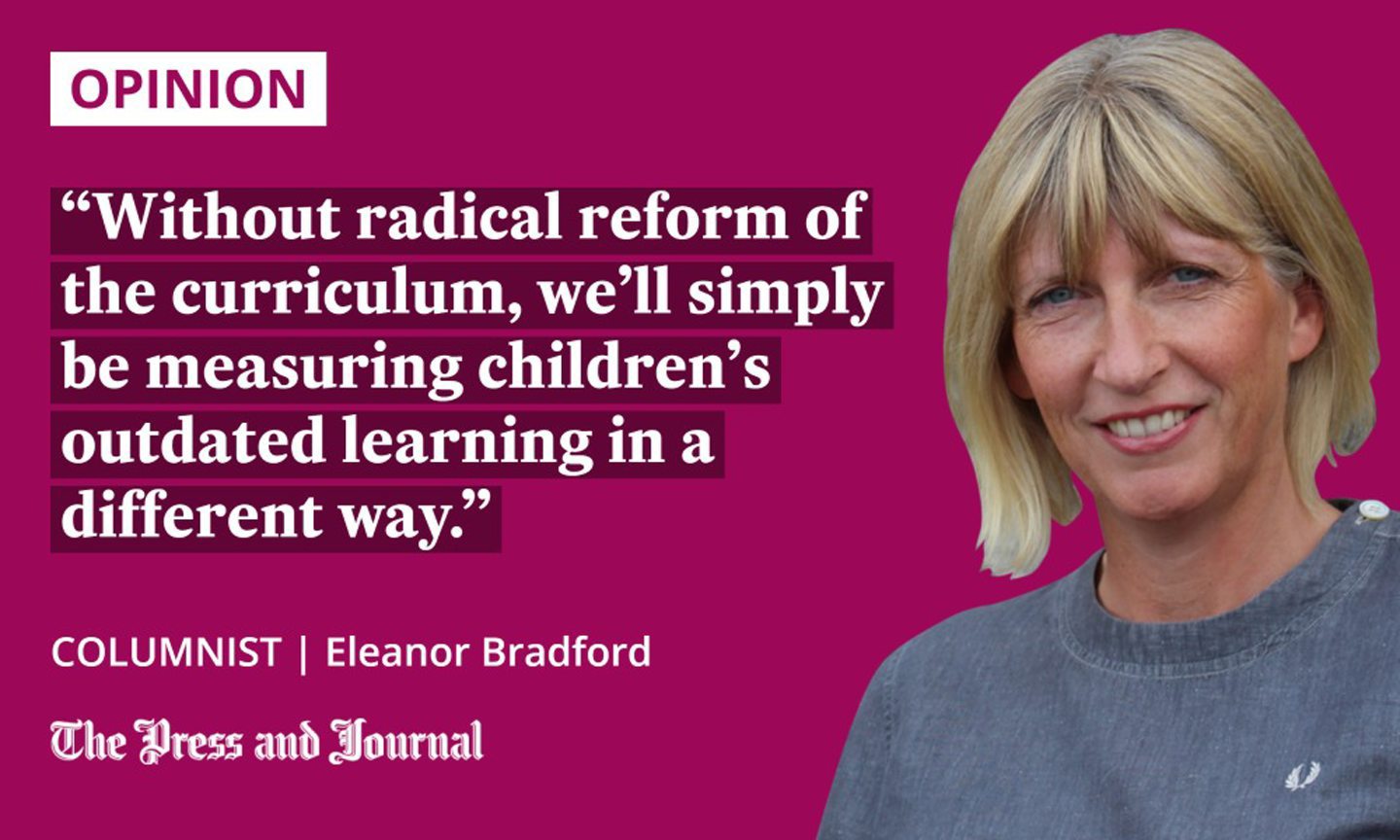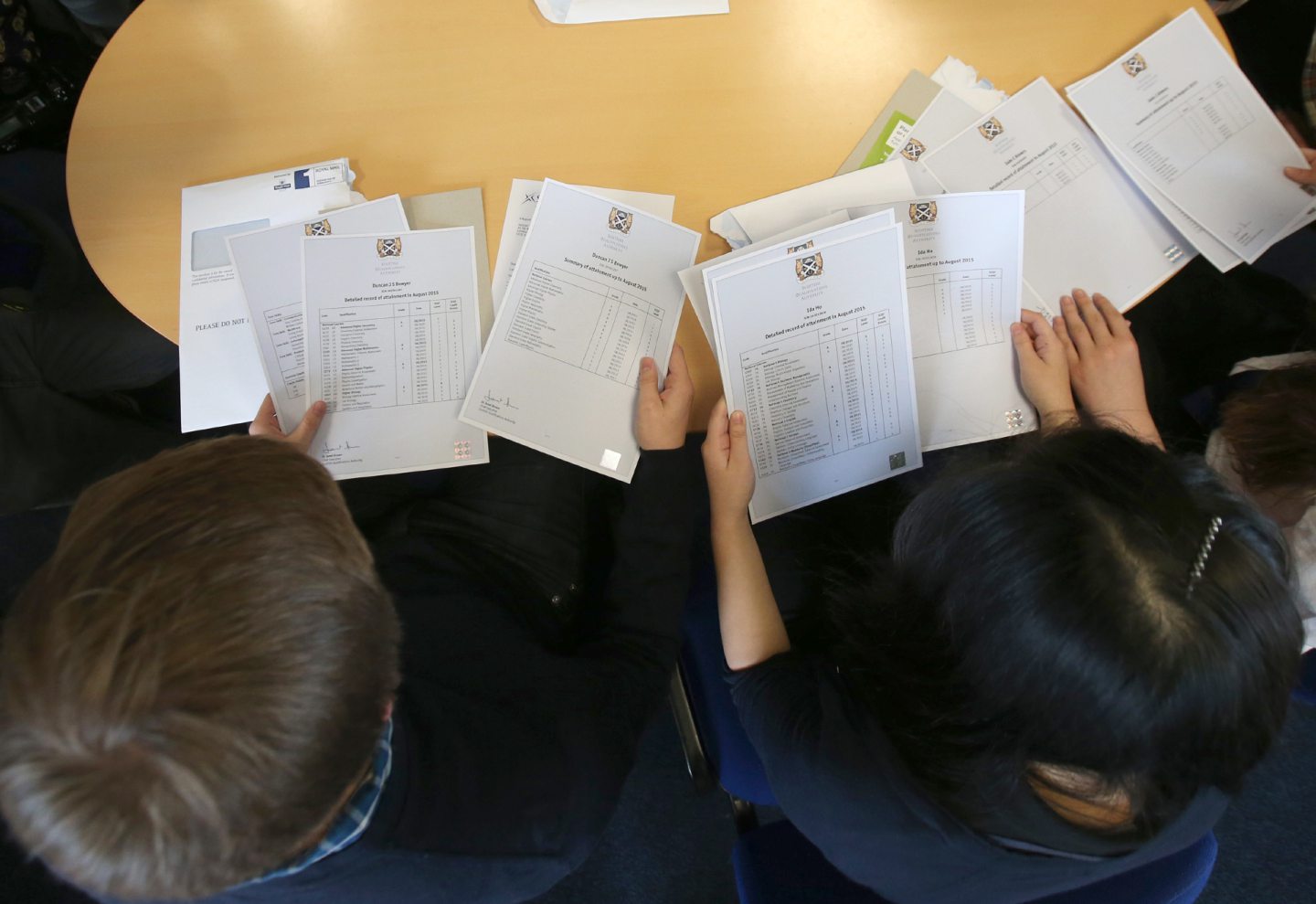If there’s one thing every parent learned during the pandemic, it was that the curriculum is weird.
On the one hand, we struggled with the maths and grammar and, on the other, some lessons involved nothing more stretching than watching a movie.
Business leaders have long called for curriculum reform to give young people the skills they need for the workplace. Now we’re finally listening, and the need is more urgent than ever.
We are on the cusp of another technological revolution, which makes our current curriculum look as outdated as handwriting practice. The impact of artificial intelligence (AI) goes way beyond the ability to use ChatGPT to cheat in assessments.
How do we prepare our children for careers we cannot even imagine yet? Twenty years ago, who knew you would be able to make a living as an “influencer”? Not only do these jobs now exist, but there is a shortage of applicants, and graduates in digital marketing now walk into roles starting at £40,000.
A review of the exam system is set to recommend the scrapping of National 4s and 5s (AKA Standard Grades), but without radical reform of the curriculum, we’ll simply be measuring children’s outdated learning in a different way. We’ve had the Curriculum for Excellence but, instead of improving the situation, Scotland has now fallen down an international educational league table.

I was born into the reforming zeal of the 1970s. As a result of a desire to teach critical thinking rather than parrot learning, I could outline the evidence that Richard III murdered the Princes in the Tower, but I couldn’t tell you which monarch came before or after him.
Another problem was the complete lack of any grammar tuition, which made learning foreign languages hard and left me looking rather stupid in later life, especially when surrounded by adults who’d attended independent schools which continued to teach all the traditional stuff parents demanded.
Now I work with Generation Z. I have been told by my children’s teachers that spelling and grammar is still not required for any subject except English, which is perhaps why I have to spend so much time correcting the spelling and grammar of my younger colleagues (worrying in itself, given my lack of expertise). However, I have to admit they are hard-working, diligent, creative and have an impressive ability to grasp a complex issue and work out solutions.
My state school contemporaries are today’s entrepreneurs
At my state school, I was surrounded by clever kids who didn’t do well in exams. That was compounded by the fact we had out of date textbooks (which had to be shared) and our teachers were off on strike for weeks at a time.
My “Class of ’88” was also hampered by a teacher who couldn’t teach. Not a single student in biology achieved more than a B in exams. He taught year after year, failing generation after generation.
After 12 years of state school, I went to one of the UK’s top performing private schools for two years to do my A Levels. All the students at that school got a brand new textbook each (imagine my surprise!), as well as the best tuition money could buy. They all left school with straight As.
But the interesting thing was, a few decades later, it was my state school contemporaries who were the entrepreneurs. They set up their own businesses; my old best friend has an expanding company supplying the fishing industry, and a fleeting teenage boyfriend owns a successful garden centre. The education system had no way of recognising their intelligence, but the free market did, and they thrived after leaving school.
Even more encouragingly, I recently had a reunion with some university pals. None of us came from a privileged background, yet we have gone on to do very well. Amongst us we had the chief finance officer of a global company, a city trader, several lawyers and a government minister. Not bad for one corridor of one hall of residence. We have paid back our free tuition fees tenfold in tax.
Invest in AI and education
So, as we consider reforming our education system, I hope we learn the lessons of the past. Exams measure some aspects of your intelligence, such as the ability to perform under pressure and regurgitate information upon request. These are skills worth recognition, but we need to measure all round cleverness. Investment in staff must be linked to minimum standards of performance.
The good news is that artificial intelligence makes all this possible. It gives us new ways of monitoring student ability as well as their progress, allowing good teaching to be rewarded.
By investing in AI and developing close links between schools and the business sector, we could make sure our children keep up with the pace of change
Then there is the question of investment. Tony Blair and William Hague recently put aside their differences to call for investment in AI, arguing that future generations would question why we allocated £100 billion to the HS2 railway and only £1 billion for artificial intelligence research. By investing in AI and developing close links between schools and the business sector, we could make sure our children keep up with the pace of change.
The UK once had an education system which was the envy of the world, and Scottish schools were its crowning glory. If only we could seize the opportunity to reclaim that crown.
Eleanor Bradford is a former BBC Scotland health correspondent and now works in communications











